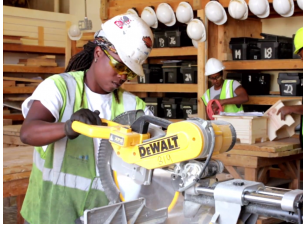New dawn for “Age of the Apprentice” according to FMB
This post has already been read 1440 times!
The new conservative Government apprenticeship reforms hope to bring new dawn for “Age of the Apprentice” as projections say that construction should be responsible for around 210,000 of these apprenticeships according to the Federation of master Builders.

With many employers using the term apprenticeship in a unscrupulous way the Government Skills Minister Nick Boles MP, outlined that the term ‘apprenticeship’ will be legally protected from misuse.
Brian Berry, Chief Executive of the FMB, commented: “Apprenticeships simply don’t have the status they deserve. The Government’s latest apprenticeship reforms are a positive step – in particular, giving legal protection to the term ‘apprenticeship’ should help tackle its blatant misuse by some organisations in some sectors. High quality apprenticeships should be viewed by society just as favourably as university degrees and protecting the term from misuse will help ensure this is the case.”
Berry added further: “The Government’s target of three million additional apprenticeships over the coming five years is suitably ambitious but reforms are required to ensure that these are actually delivered. As construction accounts for around 7% of GDP, it means our sector should be responsible for around 210,000 of these apprenticeships, which equates to 42,000 a year over the next Parliament. Given that the industry only achieved 16,000 in 2013/2014, there is a lot of work to be done.
Berry concluded: “Government is also right to say it must practice what it preaches when it comes to training apprentices. Not only should schools, hospitals, prisons and police forces train more apprentices, government must also get better at driving apprenticeship training through public sector contracts. As almost 40% of total construction output is public sector, this is absolutely key. Firms should never be awarded public sector work by central or local government unless they have committed to training an appropriate proportion of apprentices. Where contracts are not long enough to sustain an entire apprenticeship, shared apprenticeship schemes should be used. In the past, there has been evidence to suggest that pledges by firms to train apprentices have not transpired. Government needs to get better at policing its contractual stipulations if we are to really crank up the level of apprenticeships via the public sector.”


